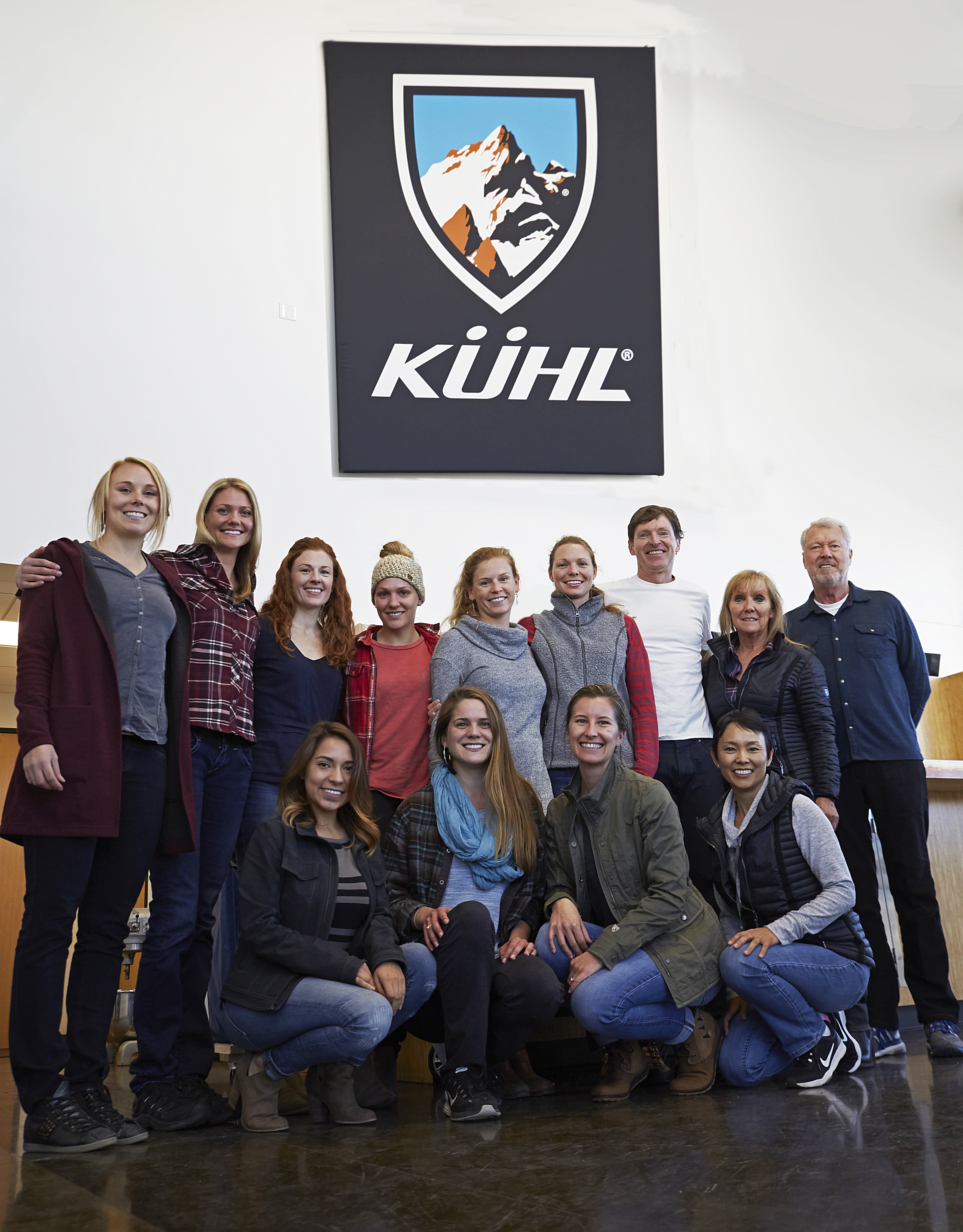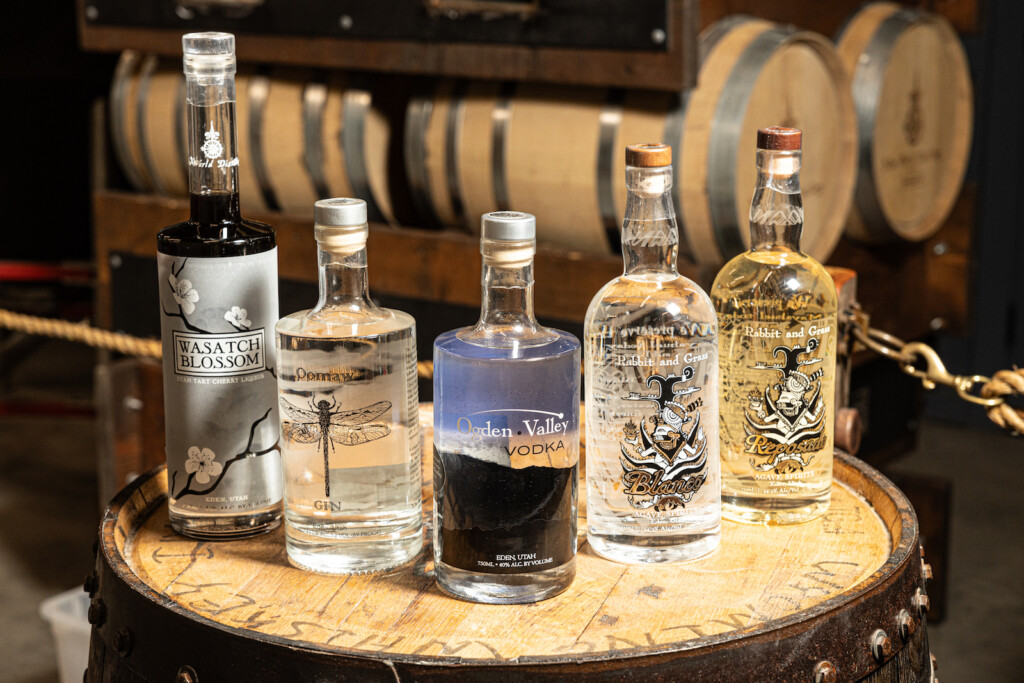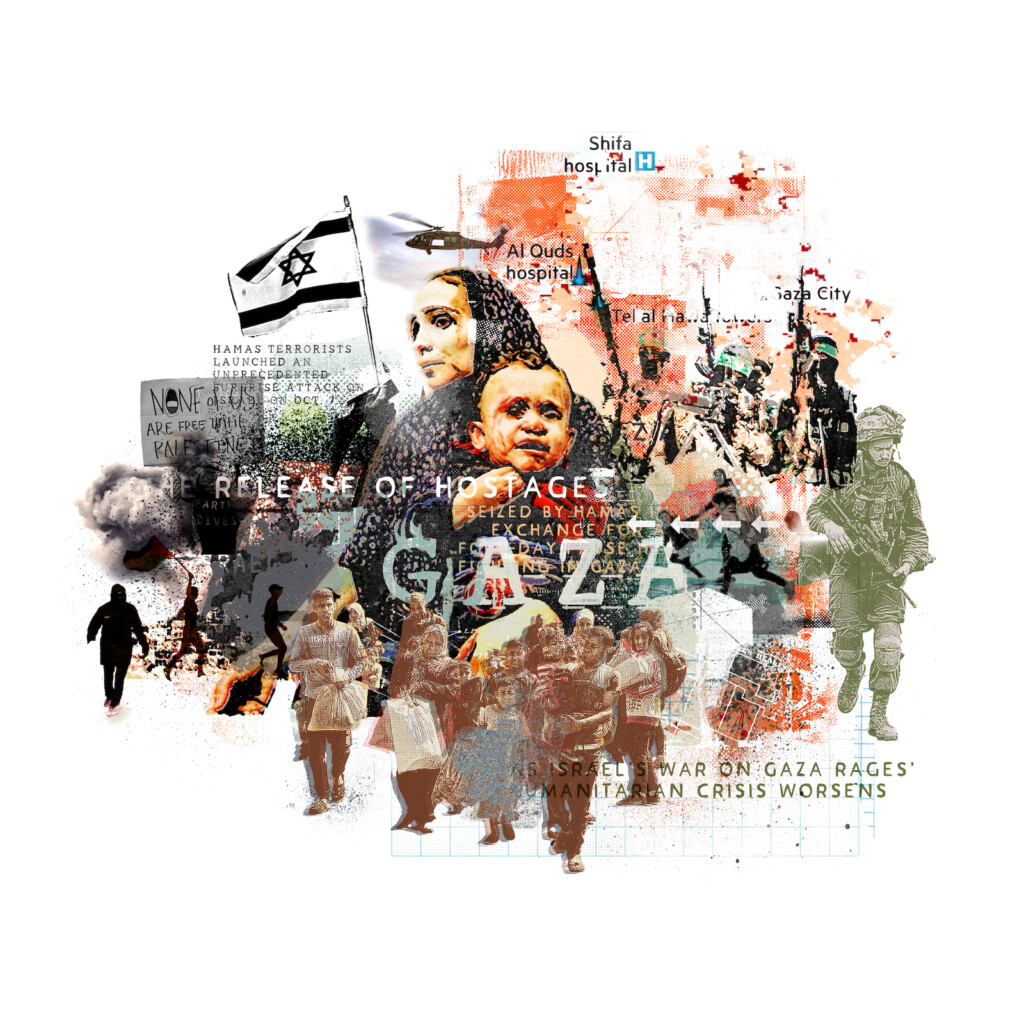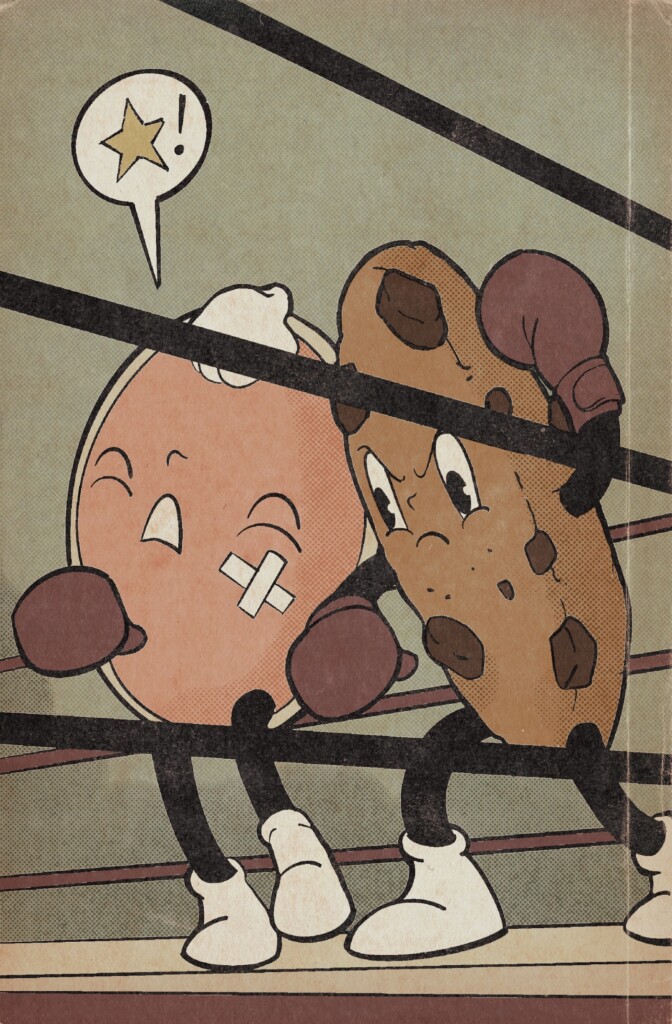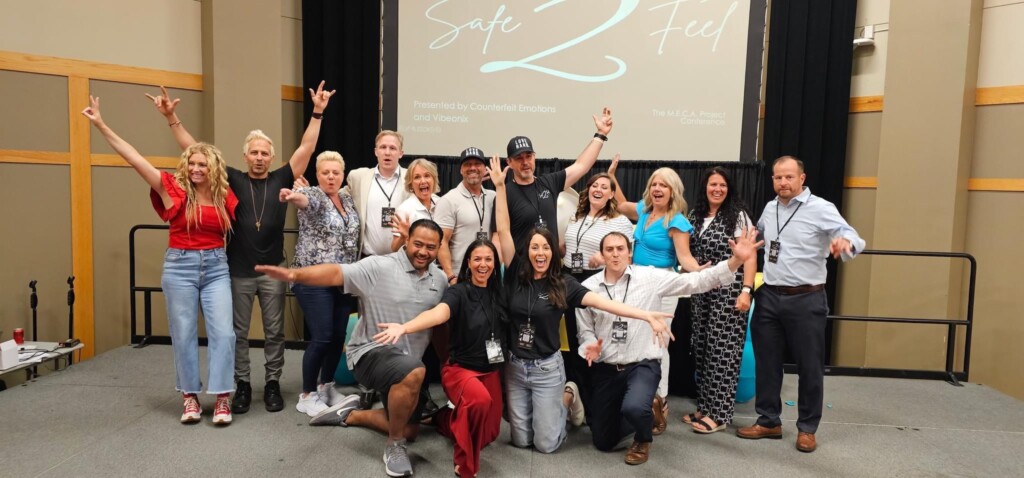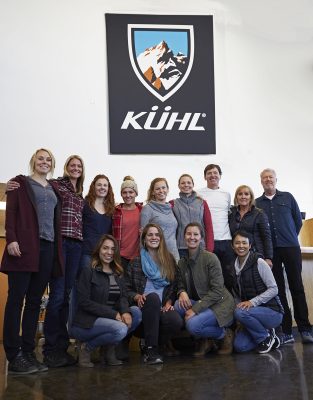
Walking into KÜHL’s headquarters in Salt Lake City, you can’t help but be immediately struck by the design of the facility. High ceilings and tall windows welcome a bright, natural light into the lobby, which offers a large commercial kitchen and a dining/meeting area. Something smells delicious. Employees aren’t at cubicles, but at tall desks and open work areas. Everyday a private chef, Michael Osten, buys fresh, organic food and cooks something great. But I didn’t come here only to eat lunch. I have to find an answer to just one question
How does a self-proclaimed ski bum build one of the most successful outdoor retail brands in the world?
KÜHL sold over one million pairs of pants last year, and is now the 2nd largest independently-owned outdoor clothing company anywhere. And not only did a ski bum start the business, but ski bums (former and current Snowbird employees) and other outdoor enthusiasts do most of the work here as well.
When Kevin Boyle was 19, he drove from Pennsylvania to Salt Lake City to be a ski bum. He had no idea that in 1982 the competition for ski bumming would be so fierce. Even college graduates wanted to be ski bums. But he landed a job at the Alpenglow at Alta. Soon after, he was fired due to his lax work ethic and his, as he describes it, “opinion-itus.”
Unemployment lead to Boyle living out of a snow cave on the mountain, which posed a challenge to his ski bum values—mainly, that “things aren’t important.” Boyle now admits that, “Certainly, there are a few things everyone needs—shelter, warmth, and regular meals, but you need to do what you love. This matters so much more than things.”
Boyle admits that he was never a very good employee. And, he also confesses, “I wasn’t a very good boss, either.”
Boyle started Alfwear, a ski hat business, with his brother and two other partners. “When I started, I was probably a jerk,” Boyle states. Then he adds, ”One of the women who works here, Robin, takes care of our books in accounting. She tried to quit after the first month and I begged her to stay. She said to me, ‘Well, if I’m going to stay, you are going to need to change.’ And I said, “Hey, I’m willing to grow and change.”
Boyle knows that it was his willingness to change, adapt, and stay humble that has made all the difference.
For me it was a matter of constantly looking in the mirror. I knew that if I wasn’t constantly changing, KÜHL wasn’t going to be constantly growing. I needed to be reinventing myself.
“For me it was a matter of constantly looking in the mirror. I knew that if I wasn’t constantly changing, KÜHL wasn’t going to be constantly growing. I needed to be reinventing myself.”
Throughout our lunch, Kevin can’t help but point out the talented team members who work at KÜHL. “That’s ‘Chucknology’ (Chuck Williams) over there. Joey Lythgoe was one of the top cyclists for years. Kevin Thorpe a top men’s elite trailrunner. One of our artists, Manny Carrasco, used to work at Disney and Pixar. When you’re around so many talented people, it’s really easy to stay humble. We have a motto: Let’s be grateful for what we have, remain humble, but stay hungry. That is what we live by.”
When KÜHL started up at Snowbird around 25 years ago, their little shop with a new brand name was surprising. It was just at the time when North Face jackets were a huge deal. All the cool kids wore North Face or Patagonia. I was struck that a brand called KÜHL really believed they could be cooler. Thirty-years later, they are without a doubt cooler, not only because their jackets are cooler, but because their headquarters are in Utah, and they have remained independent, which is a true anomaly in the world of outdoor retailers.
Amazingly, the KÜHL empire was built without “angel investors” or “venture capital.” It was “built in the mountains,” and Boyle credits everybody but himself for its success, which is why he rarely talks to the media.
Now, for the million-dollar question that brought me here: I want to be an outdoor bum and a successful business owner, too. But how to achieve it? I feel like the monk who has climbed the mountain to ask the master a question.
The perception is that in order to run a large corporation, you must be stressed, neglect having fun, and forget about taking time off. Boyle completely missed the memo on these attributes of a CEO.
While it’s a fact that a large part of Boyle’s daylight hours are spent on the mountain (skiing and mountain biking—getting in around 60+ days per season) to consistently succeed, he (and all of the other staff) like to “live two days for the price of one.”
While they play very hard at KÜHL, they work even harder. As Boyle puts it, they aren’t recruiting average people at KÜHL, but “rainmakers.” These are talented people who want to work extremely hard at making “greatness.”
Boyle acknowledges that “Nobody needs another coat or pair of pants; what people want is “greatness.” Another noun, which he uses as an adjective when he describes the company’s greatness is that, at KÜHL, they want to make “music.”
Boyle describes how he competes against iconic brands such as North Face, Patagonia and Columbia. “I feel like basically they are the Navy and we are the Pirates. And when we see they are not paying attention to something, we are going to focus on it. Even Genghis Khan figured out that he couldn’t take over the world. Because if you are focused on everything, you are going to be great at nothing. So, we feel that when these companies are really large like that, there is always opportunity.”
Specifically, KÜHL figured out early on that they weren’t going to compete with North Face’s
“Summit Wear.” Instead, for the past 30 years, KÜHL has been focused on making “technical sportswear”—clothing that looks casual but is really high performance—which is the type of clothing people wear most often.
“That outdoor athlete still spends more time at the local coffee shop than they do at the peak,” so KÜHL focused on the products that mountain people wear everyday. Boyle smiles and adds, “And that’s what we did. And we have had an incredible run. And we will see if we can keep it going.”
Culture and Hiring Talent
Kevin Boyle: I actually think that [the people who work here] are the funnest thing about coming to work. Really, the staff challenges me. And people aren’t afraid to call me out and challenge me. And we have a really good working relationship where they know that I think the ego is really what hurts people from growing and succeeding. And I think that people know they can call me out on stuff and they aren’t going to offend me. Because I want to grow and I want to change and I want to become a better human being.
The thing is, we are a private company. We aren’t trying to take over the world. We want to enjoy life and have a good time. But you know, honestly, I think that I possibly work harder than anybody I know. It’s not something that ever turns off. I was doing something after 10:30 last night, after I was working out, doing stuff on the rowing machine.
We have offices in Switzerland, UK and Shanghai. So a lot of times you are communicating with people overseas in factories and production. Now, we sell a lot of places from Australia to Singapore. But our main business is in the US. It’s 97% of our business. But it’s definitely a lot of work.
Richard Markosian: So you really just manage to work hard and play hard at the same time?
K.B.: Why not [laughing] right? You know what though. The reality is that we have an incredible team. We have amazing, dedicated people who work really hard here. Our thinking is that not only do we give all of our employees full health care, and we have for twenty years, but we pay for everything. They have to pay, they go to their doc, they pay a $25 deductible. If they go to the emergency room, I think it’s $75. So, we pay everyone’s health insurance 100%. And we are really big on performance pay. We give people quarterly bonuses. And for a lot of people who have been here for a long time, those bonuses are more than their pay. So it’s a big deal. And I think that.
What I try to explain to people is that we don’t want more people. We want rainmakers. And if you are a rainmaker and you know how to work hard and make things happen — it’s like being at a construction site — if some guys has to tell you to pick up the other end of the board — you are worthless. You want somebody who is bringing the boards and putting them into place so that the carpenter or the head guy is helping them to orchestrate and looking ahead. And when you find somebody like that, our philosophy is we will pay them as much as we can afford to.
Because, you find great people can work anywhere. There is only one in one hundred people who are great. We try to recruit and find great people, and when we do we literally try to pay them as much as we can afford to. So I think what we try to do with our philosophy is to look at our business as a building or a foundation, and to try to have a really strong foundation we need to number one, make a better product, and the end customer feel that it’s better. Or we won’t get their business and we don’t deserve their business. Then at the same time, we need to do the same thing for our employees. If we find that people are great, then we need to do everything we can not just to make their lives better, but to make them significantly better.
The third thing we have to do is to make sure that our retail partners, that we are being real partners to them and not undercutting them, and at the same time, the company has to be profitable and continue to get stronger. So we try to balance those four things in balancing our priorities in running the company, so that none of them get too far out of line with the other four. So that all boats rise, so to speak. And I think that’s something we try to balance and really do.
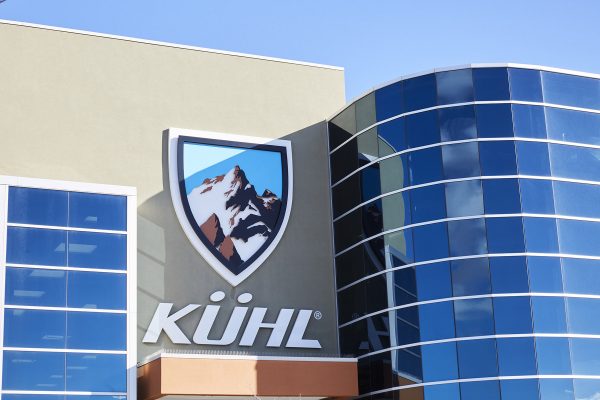
Because when somebody is giving you their life’s work of forty hours per week, it not the mentality “you are lucky to have a job.” It’s none of that non-sense you hear from traditional old-school management, it is nonsense. It’s like you want people who are great, and you want to make sure that you don’t loose them to someone else. So we really try to make their lives.
And the other thing that everybody wants is freedom right? If we walk around and tell everyone what to do all of the time, nobody wants that. People want some level of freedom. So we try to build that in to give them as much freedom as possible.
Hey, These are our goals. This is what we are trying to achieve, and whoever is going to make that happen is going to get rewarded the most. And if you want us to over-staff the place and do a lot of water cooler talk, you just aren’t going to get big bonuses. And I think the people here, they would rather work with less people and really get rewarded well. And really get paid exceptionally. So that is what we really try to do.

